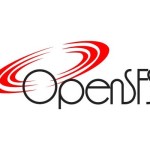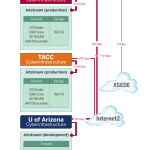Thanks to a grant from the National Science Foundation, Indiana University is developing an online service that will make it easier for university administrators to understand the importance of funding related to IT systems based at their institutions. The novel functionality will be available as a module for Open XDMoD (XD Metrics on Demand), which was developed by the University at Buffalo Center for Computational Research (CCR).
OpenSFS Releases Lustre 2.8.0 for LUG 2016 Conference
Today the Open Scalable File Systems (OpenSFS) community announced the release of Lustre 2.8.0, the fastest and most scalable parallel file system. OpenSFS, founded in 2010 to advance Lustre development, is the premier non-profit organization promoting the use of Lustre and advancing its capabilities through coordinated releases of the Lustre file system.
Thomas Sterling Weighs in on the OpenHPC Community
Over at the OpenHPC Blog, Thomas Sterling from Indiana University describes why the Crest Project has joined the OpenHPC Community: “We want to make a specific contribution. By associating ourselves with an emergent framework, in which we could benefit from the work of many different people interested in different things but under a unifying guidance of scaffolding interfaces, we were able to achieve our objectives in low cost, HPC for end users. If, and I have to say if, OpenHPC does this right, you will provide that framework.”
Video: Jetstream to Make HPC a Breeze for Researchers
In this video, researchers describe how the Jetstream project at Indiana University. Jetstream is a user-friendly cloud environment designed to give researchers access to interactive computing and data analysis resources on demand, whenever and wherever they want to analyze their data. It will provide a library of virtual machines designed to do discipline specific scientific analysis. Software creators and researchers will also be able to create their own customized virtual machines or their own private computing system within Jetstream.
Dell Panel on the Convergence of HPC, Big Data, and Cloud
“Modeling and simulation have been the primary usage of high performance computing (HPC). But the world is changing. We now see the need for rapid, accurate insights from large amounts of data. To accomplish this, HPC technology is repurposed. Likewise the location where the work gets done is not entirely the same either. Many workloads are migrating to massive cloud data centers because of the speed of execution. In this panel, leaders in computing will share how they, and others, integrate tradition and innovation (HPC technologies, Big Data analytics, and Cloud Computing) to achieve more discoveries and drive business outcomes.”
Apply Now for XSEDE’s Jetstream Shared Cloud Research Allocations
XSEDE’s new Jetstream shared cloud resource is coming online early next year, but you can now apply for Jetstream research allocations.
NSF Funds Jetstream Cloud for Science and Engineering
The Pervasive Technology Institute at Indiana University has received this grant to create NSF’s first science and engineering research cloud, Jetstream.
IU to Develop Data Analysis Tools with NSF Grant
The NSF has awarded $5 million to a team of Indiana University Bloomington computer scientists working to improve how researchers across the sciences empower big data to solve problems.
Karst Supercomputer to Power Research at Indiana University
In this video, Dave Hancock describes Karst, Indiana University’s newest supercomputer cluster. Housed in the IU Data Center, Karst will help researchers secure federal grants to fund discoveries, create jobs in the state, and keep sensitive data safe from cybersecurity threats.












